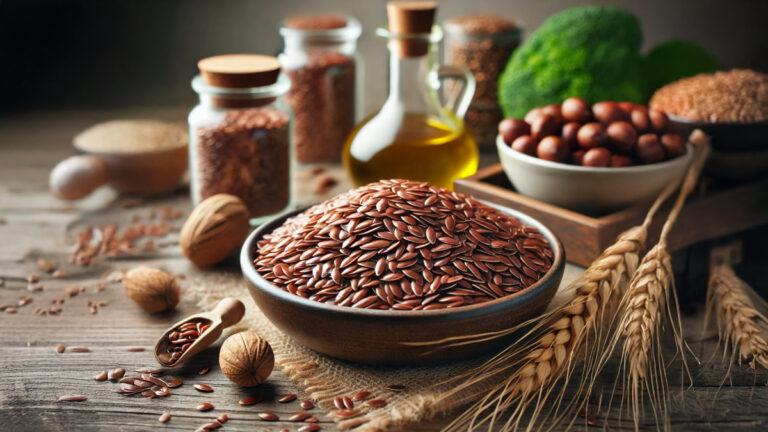Lifestyle Changes to Prevent Breast Cancer: Breast cancer is often perceived as a women’s disease, but it can also affect men. While breast cancer is more common among women, awareness is essential, as cases in men, although rare, do occur. This article highlights important Lifestyle Changes to Prevent Breast Cancer that everyone, regardless of gender, can adopt to lower their risk of breast cancer and promote overall breast health.
Understanding Breast Cancer in Both Genders
Breast cancer is a serious illness that arises when breast cells grow uncontrollably, forming a tumor. It is crucial to recognize that both men and women can be affected by this disease. According to the American Cancer Society, while the lifetime risk of developing breast cancer is about 1 in 8 for women, it is approximately 1 in 833 for men. Despite the lower prevalence in men, awareness and prevention are vital.
Key Lifestyle Changes to Prevent Breast Cancer
Maintain a Healthy Weight
Keeping your weight under control is essential for reducing the risk of breast cancer for everyone. Obesity is linked to an increased risk of breast cancer, particularly after menopause for women, and it can also impact men. To maintain a healthy weight, focus on a balanced diet rich in whole grains, fruits, vegetables, and lean proteins. Even modest weight loss can significantly lower cancer risk.
Engage in Regular Exercise
Regular physical activity is one of the most effective strategies for everyone to stay safe from breast cancer. Aim for at least 150 minutes of moderate aerobic exercise each week or 75 minutes of vigorous exercise. Exercise helps regulate hormone levels, lowers body fat, and enhances overall health, thereby reducing the risk of various cancers.
Limit Alcohol Consumption
There is a well-established link between alcohol consumption and breast cancer risk. Limiting alcohol intake can significantly reduce the risk for both men and women. It’s advisable to restrict alcohol to one drink per day or consider abstaining altogether. Research indicates that individuals who consume two to three alcoholic beverages daily have a higher risk of breast cancer.
Quit Smoking for Better Health
Smoking is associated with a variety of health risks, including an increased risk of breast cancer. Quitting smoking not only improves overall health but can also lower cancer risk. For those who struggle with tobacco addiction, numerous resources are available to assist in quitting.
The Benefits of Breastfeeding
For women, breastfeeding for at least 1.5 to 2 years can help lower the risk of breast cancer. While this specifically benefits women, it is important for men to support their partners during this process, as it promotes both maternal and infant health.
Regular Checkups and Self-Examinations
Regardless of gender, regular checkups and self-examinations are crucial for early detection of breast cancer. Men should also be aware of changes in their breast tissue and report any unusual findings to their healthcare provider. Regular clinical breast exams and mammograms (as recommended) are vital components of preventative health.
Educate Yourself About Risk Factors
Understanding the risk factors associated with breast cancer can empower individuals to make informed choices. These risk factors include family history, age, genetic mutations, and lifestyle habits. Staying informed about breast cancer can enhance cancer awareness and promote proactive health measures.
Seven Tips for Lifestyle Changes to Prevent Breast Cancer
- Adopt a Balanced Diet: Emphasize a diet rich in fruits, vegetables, whole grains, and lean proteins while reducing saturated fats and sugars.
- Stay Hydrated: Drinking plenty of water can help maintain overall health and promote proper body functions.
- Manage Stress: Incorporate stress-reducing activities such as yoga, meditation, or deep-breathing exercises to improve mental well-being.
- Limit Processed Foods: Reduce consumption of processed and red meats, which have been linked to a higher risk of certain cancers.
- Increase Fiber Intake: A high-fiber diet can help with weight management and reduce breast cancer risk. Include beans, lentils, and whole grains.
- Get Enough Sleep: Aim for 7-8 hours of quality sleep each night, as sleep is crucial for overall health and hormone regulation.
- Stay Informed About Screening: Follow guidelines for breast cancer screenings, including self-exams and mammograms, and discuss any concerns with your healthcare provider.
Conclusion: Taking Charge of Your Health
Breast cancer can indeed affect both women and men, making it imperative to stay informed and proactive about health. By adopting these lifestyle changes to prevent breast cancer, individuals can significantly reduce their risk. Awareness, education, and regular health screenings are key to taking charge of your health and well-being.
Remember, whether you are a man or a woman, prioritizing your health through lifestyle choices can make a significant difference. Consult your healthcare provider for personalized advice and recommendations regarding breast health.
(Disclaimer: The information given here is based on general information. Before adopting it, definitely take medical advice. THE MONK does not confirm this.)





































